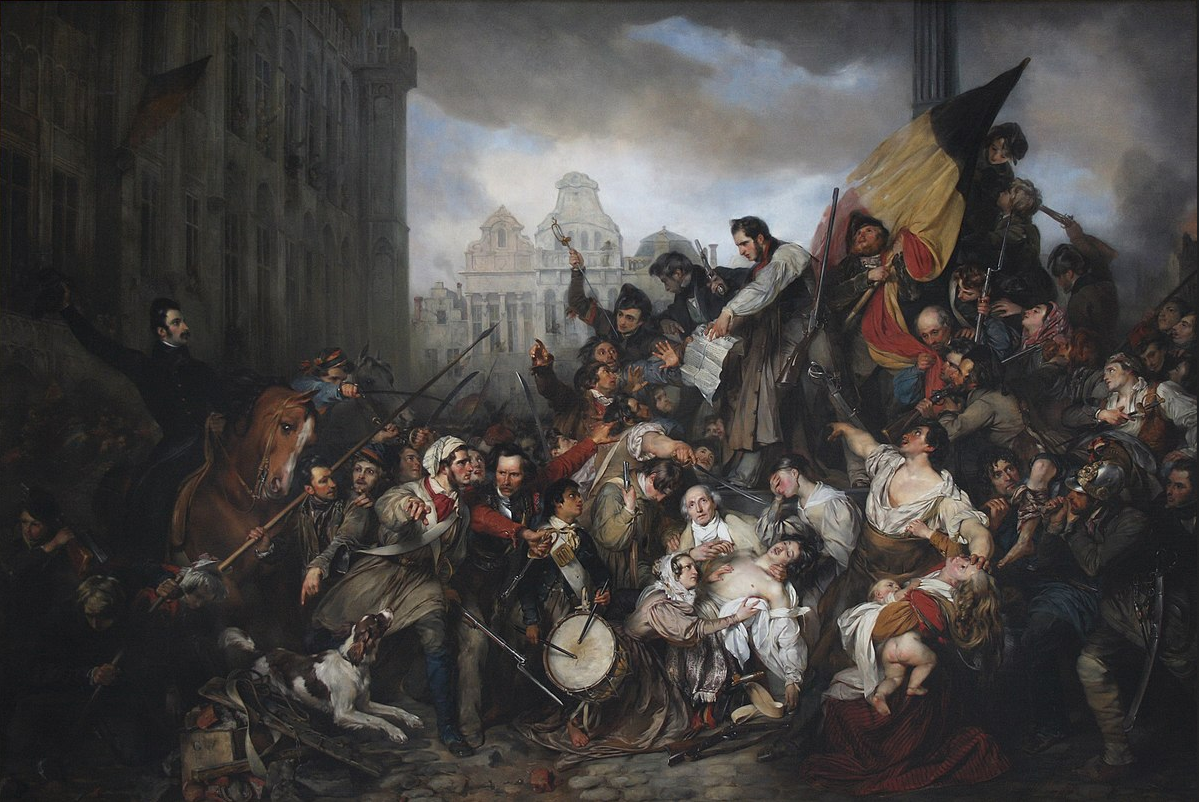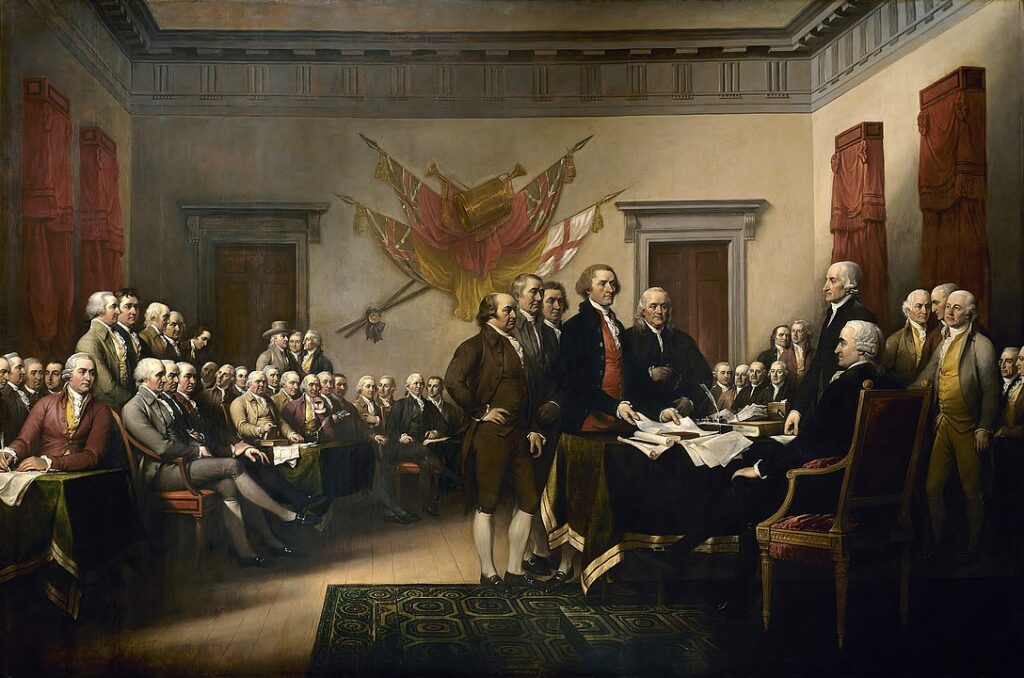Editor’s note: The following is extracted from The Uses of Diversity, by G.K. Chesterton (published 1920)
We most of us suffer much from having learnt all our lessons in history from those little abridged history-books in use in most public and private schools. These lessons are insufficient—especially when you don’t learn them. The latter was indeed my own case; and the little history I know I have picked up since by rambling about in authentic books and countrysides. But the bald summaries of the small history-books still master and, in many cases, mislead us. The root of the difficulty is this: that there are two quite distinct purposes of history—the superior purpose, which is its use for children, and the secondary or inferior purpose, which is its use for historians. The highest and noblest thing that history can be is a good story. Then it appeals to the heroic heart of all generations, the eternal infancy of mankind. Such a story as that of William Tell could literally be told of any epoch; no barbarian implements could be too rude, no scientific instruments could be too elaborate for the pride and terror of the tale. It might be told of the first flint-headed arrow or the last model machine-gun; the point of it is the same: it is as eternal as tyranny and fatherhood. Now, wherever there is this function of the fine story in history we tell it to children only because it is a fine story. David and the cup of water, Regulus and the atque sciebat, Jeanne d’Arc kissing the cross of spear-wood, or Nelson shot with all his stars—these stir in every child the ancient heart of his race; and that is all that they need do. Changes of costume and local colour are nothing: it did not matter that in the illustrated Bibles of our youth David was dressed rather like Regulus, in a Roman cuirass and sandals, any more than it mattered that in the illuminated Bibles of the Middle Ages he was dressed rather like Jeanne d’Arc, in a hood or a visored helmet. It will not matter to future ages if the pictures represent Jeanne d’Arc cremated in an asbestos stove or Nelson dying in a top-hat. For the childish and eternal use of history, the history will still be heroic.
But the historians have quite a different business. It is their affair, not merely to remember that humanity has been wise and great, but to understand the special ways in which it has been weak and foolish. Historians have to explain the horrible mystery of how fashions were ever fashionable. They have to analyse that statuesque instinct of the South that moulds the Roman cuirass to the muscles of the human torso, or that element of symbolic extravagance in the later Middle Ages which let loose a menagerie upon breast and casque and shield. They have to explain, as best they can, how anyone ever came to have a top-hat, how anyone ever endured an asbestos stove.
Now the mere tales of the heroes are a part of religious education; they are meant to teach us that we have souls. But the inquiries of the historians into the eccentricities of every epoch are merely a part of political education; they are meant to teach us to avoid certain perils or solve certain problems in the complexity of practical affairs. It is the first duty of a boy to admire the glory of Trafalgar. It is the first duty of a grown man to question its utility. It is one question whether it was a good thing as an episode in the struggle between Pitt and the French Revolution. It is quite another matter that it was certainly a good thing in that immortal struggle between the son of man and all the unclean spirits of sloth and cowardice and despair. For the wisdom of man alters with every age; his prudence has to fit perpetually shifting shapes of inconvenience or dilemma. But his folly is immortal: a fire stolen from heaven.
Now, the little histories that we learnt as children were partly meant simply as inspiring stories. They largely consisted of tales like Alfred and the cakes or Eleanor and the poisoned wound. They ought to have entirely consisted of them. Little children ought to learn nothing but legends; they are the beginnings of all sound morals and manners. I would not be severe on the point: I would not exclude a story solely because it was true. But the essential on which I should insist would be, not that the tale must be true, but that the tale must be fine.
The attempts in the little school-histories to introduce older and subtler elements, to talk of the atmosphere of Puritanism or the evolution of our Constitution, is quite irrelevant and vain. It is impossible to convey to a barely breeched imp who does not yet know his own community, the exquisite divergence between it and some other community. What is the good of talking about the Constitution carefully balanced on three estates to a creature only quite recently balanced on two legs? What is the sense of explaining the Puritan shade of morality to a creature who is still learning with difficulty that there is any morality at all? We may put on one side the possibility that some of us may think the Puritan atmosphere an unpleasant one or the Constitution a trifle rickety on its three legs. The general truth remains that we should teach, to the young, men’s enduring truths, and let the learned amuse themselves with their passing errors.
It is often said nowadays that in great crises and moral revolutions we need one strong man to decide; but it seems to me that that is exactly when we do not need him. We do not need a great man for a revolution, for a true revolution is a time when all men are great. Where despotism really is successful is in very small matters. Every one must have noticed how essential a despot is to arranging the things in which every one is doubtful, because every one is indifferent: the boats in a water picnic or the seats at a dinner-party. Here the man who knows his own mind is really wanted, for no one else ever thinks his own mind worth knowing. No one knows where to go to precisely, because no one cares where he goes. It is for trivialities that the great tyrant is meant.
But when the depths are stirred in a society, and all men’s souls grow taller in a transfiguring anger or desire, then I am by no means so certain that the great man has been a benefit even when he has appeared. I am sure that Cromwell and Napoleon managed the mere pikes and bayonets, boots and knapsacks better than most other people could have managed them. But I am by no means sure that Napoleon gave a better turn to the whole French Revolution. I am by no means so sure that Cromwell has really improved the religion of England.
As it is in politics with the specially potent man, so it is in history with the specially learned. We do not need the learned man to teach us the important things. We all know the important things, though we all violate and neglect them. Gigantic industry, abysmal knowledge, are needed for the discovery of the tiny things—the things that seem hardly worth the trouble. Generally speaking, the ordinary man should be content with the terrible secret that men are men—which is another way of saying that they are brothers. He had better think of Cæsar as a man and not as a Roman, for he will probably think of a Roman as a statue and not as a man. He had better think of Cœur-de-Lion as a man and not as a Crusader, or he will think of him as a stage Crusader. For every man knows the inmost core of every other man. It is the trappings and externals erected for an age and a fashion that are forgotten and unknown. It is all the curtains that are curtained, all the masks that are masked, all the disguises that are now disguised in dust and featureless decay. But though we cannot reach the outside of history, we all start from the inside. Some day, if I ransack whole libraries, I may know the outermost aspects of King Stephen, and almost see him in his habit as he lived; but the inmost I know already. The symbols are mouldered and the manner of the oath forgotten; the secret society may even be dissolved; but we all know the secret.









